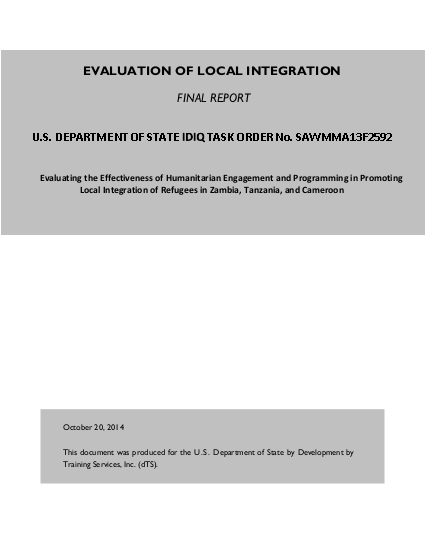Evaluating the Effectiveness of Humanitarian Engagement and Programming in Promoting Local Integration of Refugees in Zambia, Tanzania, and Cameroon

The purpose of this evaluation is to identify best practices in promoting local integration of refugee populations through humanitarian diplomacy and programming supported by the U.S. Department of State’s Bureau for Population, Refugees, and Migration (PRM) and one of its primary partners, the Office of the United Nations High Commissioner for Refugees (UNHCR). The evaluation consisted of (1) a global desk review and historical analysis of local integration policies and practices, and (2) three field-based evaluations in Cameroon, Tanzania, and Zambia.
The desk review and site visits focused on three key questions:
- To what extent has the programming and engagement of PRM and UNHCR promoted local integration?
- What programmatic and diplomatic interventions, as identified by PRM and UNHCR, were most and least successful?
- What should PRM and its partners be doing to support the self-reliance of refugee populations for whom voluntary return and resettlement are not feasible?
This one-year evaluation was conducted by two-person teams for the desk review and each of the country visits. The desk review included a review of hundreds of published and unpublished documents, including reports, articles, newspaper stories, websites, and databases. They represent perspectives of UNHCR and donor organizations, implementing partners, think-tanks, scholars, and journalists.